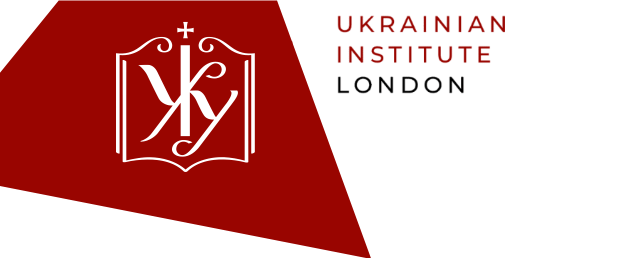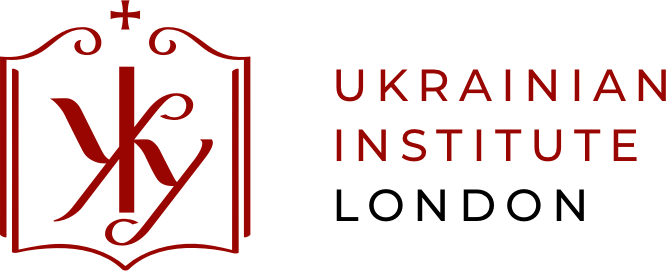An article by Ukrainian Institute London’s Director Olesya Khromeychuk published by KyivPost, 17 Dec 2020.

AUTHOR
Olesya Khromeychuk, Director of the Ukrainian Institute London and a historian of east-central Europe.
I didn’t go into lockdown straight from the university classroom. I went into lockdown from a cold, wet and terribly polluted street in central London. Many of my colleagues and I spent the last four pre-lockdown weeks standing outside of our university buildings, handing out flyers to students and staff and explaining the reasons why we were on strike. The reasons included gender and race pay gaps and job insecurity.
Handing flyers with freezing fingers to passersby is a skill I acquired while running a small theatre company: I’ve done this for several years at the Edinburgh Fringe theatre festival, promoting the shows I brought there. You need to be quick: you only have a few seconds to get someone’s attention. Meaningful eye contact, a catchy line, a pause to allow your interlocutor to ask you a question, and they might be reading the flyer and maybe even getting interested in your show – or in the reasons for your strike. A strike is also a performance, a type of street theatre.
During the strikes, the students were gaining knowledge of their lecturers’ working conditions, and it might have been as valuable as what they would have learned from us in a classroom. We all, nevertheless, missed being in classrooms. Little did we know that we would not return to them fully any time soon.
The last few weeks of that term were spent trying to figure out how to use online technology to recreate a classroom atmosphere, and many of us quickly understood the futility of our efforts. Remember: meaningful eye contact, a catchy line, a pause for your interlocutor’s question? These are the same tricks one uses in a classroom to make the learning process a success. Instead, we delivered our lectures to little black boxes on our screens or, if we were lucky and the students kept their cameras on, to boxes with faces spread all over the world as students returned home into their national lockdowns.
As my inbox filled with anxious emails from students telling me that they had COVID-19 symptoms and needed to self-isolate or their loved ones were in danger of getting ill, or they were not sure how they were going to sit their online exams because of broadband problems or lack of decent computers, I accepted that the intricacies of the 1989 revolutions, a close analysis of a primary source about World War ii or whatever else was on the syllabus in those weeks would have to wait. In any case, the students were much more interested in thinking about the meaning of globalization – not so much from the historical point of view, but rather because they could see the borders around them close, something that most of them had not experienced in their young lives. And as the summer progressed, many wished to discuss the value of democracy not in interwar Europe, but in the context of direct action unfolding in front of their eyes: from the new wave of the Black Lives Matter movement all over the world, to the protests in Belarus, pre-election demonstrations in the US and women’s marches in Poland. A good essay question at the time would have been: how does one choose between protecting oneself from a virus or against abuses of power?
Thousands of academics lost their positions, not to mention the staff in cleaning, catering and security jobs working on zero-hours contracts for outsourced companies employed by the universities.
Speaking of protests, for many of us the pre-lockdown strikes swiftly became ancient history. The struggle for those in precarious jobs was no longer about getting their temporary contracts changed to permanent ones; it was about having them extended at least by a few months to see us through to the end of the lockdown. Thousands of academics lost their positions, not to mention the staff in cleaning, catering and security jobs working on zero-hours contracts for outsourced companies employed by the universities. Their voices were barely heard under normal circumstances. They were completely drowned out in the middle of the pandemic.
So that was the summer of lost jobs, lost in-person interaction and, most importantly, many lost lives. Watching the graph of deaths from the virus go up on the news put me quickly to shame each time I wanted to moan about not being able to see friends and family, travel to conferences, go to the theatre or missing out on other middle-class pleasures. I was lucky to be able to work from home while nurses, teachers, shopkeepers and public transport drivers kept going to work regardless of risks.
My theatre company’s work was put on hold indeterminately. But if for us the repercussions were mostly of emotional discomfort, as all my actors had day jobs, for many friends who were in the industry professionally this meant the loss of livelihood, and complete uncertainty as to what the future would hold. UK government ads like the one depicting a young ballerina with a caption that read: ‘Fatima’s next job could be in cyber (she just doesn’t’ know it yet)’ added insult to injury. The jobs in the cultural industry were added to others deemed by the state as ‘unviable’.
What soon became clear, however, was that culture had not been placed on hold. Artists all over the world continued to do what they do best: find creative ways of communicating their messages to their audiences against all odds. Theatre makers based in Ukraine once again impressed me with their resilience. I wondered if it was a permanent state of being underfunded, the seventh year of living in a country that’s fighting a war or something else that fuelled their ingenuity. The most memorable online plays for me were H-effect, directed by Roza Sarkisian, a post-documentary performance based on the real lives of actors, raising issues of war crimes, belonging, and other burning questions, and Scars, directed by Natalka Syvanenko, an interactive theatre project about domestic violence, also based on true stories. If anything, the reality brought about by Covid-19, such as a sharp rise in domestic violence cases, increased the weight of shows like these and made their accessibility online all the more critical.
Maybe the money saved on the numerous conferences that did not take place in person in 2020 could fund some precariously employed scholars’ research in 2021?
Nor was academia placed on hold. Conferences that were not postponed moved online. The first one I was meant to attend seemed like such a daunting prospect: instead of being a short distance away from New York and chatting to colleagues over a cup of coffee or a glass of wine I was in my living room speaking to my laptop. Yet, it turned out that conferences could work in this format too, because what really mattered was our desperate need to exchange ideas with one another, and if this had to be done via Zoom, so be it. In addition, the fact that one didn’t have to spend a fortune on flights and hotel bills meant that more of us could be ‘in the same room’, provided we all had half-decent internet connections. Who knows, maybe the money saved on the numerous conferences that did not take place in person in 2020 could fund some precariously employed scholars’ research in 2021?
And then I got to practice turning challenges into opportunities myself when I took over the directorship of the Ukrainian Institute London, a charity that works to expand knowledge about Ukraine in the UK and beyond. An institution that largely depended on bringing people to the same space in order to tell them something interesting about Ukraine could no longer do this. The Institute team transitioned well to the online format throughout the summer. When I joined in September, the challenge was to maintain our audiences’ interest and introduce paid online events to keep the Institute afloat at a time when everyone had started to get a bit sick of Zoom. As with the flyering during the strikes, my theatre experience came in handy once again, especially when it came to working on a shoestring. If you can’t rely on money, you rely on people who care about what you do.
Not only was the Ukrainian Institute able to reach out to speakers in different time zones, we also acquired some loyal audiences far beyond the Institute’s usual habitat of west London.
It turned out that most speakers we invited were willing to dedicate several hours of their precious time for a webinar without an honorarium, even if this meant that because of time difference they had to start their working day somewhere in South America at an ungodly hour. Not only were we able to reach out to speakers in different time zones, we also acquired some loyal audiences far beyond the Institute’s usual habitat of west London. When speaking of the war in the Donbas we had people join us from Mariupol. When discussing the protests in Belarus, we could reach out to those who were actually in Minsk at the time. We missed out on screening Ukrainian films at the best cinemas in London this year, but brought them instead to homes all over the UK to be watched online.
Of course, the magic truly happens only when we all meet face to face. When we don’t get interrupted by an unstable internet connection when we are not precluded from communicating non-verbally by reducing ourselves to boxes on someone else’s screens. But these challenges are trivial and temporary. The real challenge will come when ‘things go back to normal’. Some of those who were furloughed, made redundant, fired to save costs (because of the pandemic or because employers used it as an excuse to get rid of ‘dispensable’ labor) might just about survive by coming up with creative ways of delivering their work online for a while. Sooner or later our ability to do cheap webinars or free online performances will dry up. Those of us who kept producing academic research even after we lost our academic jobs (because if we stopped, we would also lose years invested in our projects) sooner or later will have to find more sustainable ways of making a living. Let’s face it, we won’t all get jobs in cyber and, unlike the now proverbial Fatima, we already know it.
I hope that the pandemic that took away so much from so many will not take away our ability to stand up for each other’s rights. We’ll need this more than ever in the “new normal.”
So, when I think of the post-pandemic world, I don’t worry about culture as such. The diverse lockdowns all over the world were similar in that they showed that our appetite for the arts when we are deprived of it doesn’t decrease. I do worry about theatres that have already gone bust, musicians who haven’t been able to afford their rent, lighting and sound engineers who must have felt completely redundant this year. The list can continue.
I take some comfort in the last four pre-lockdown weeks I spent with my colleagues on a cold, wet, polluted street of central London handing out flyers during the strike. I hope that the pandemic that took away so much from so many will not take away our ability to stand up for each other’s rights. We’ll need this more than ever in the “new normal.”
This article was published by KyivPost, 17 Dec 2020.
Читайте українською: Олеся Хромейчук, ‘Прихід «нової нормальності» як виклик’, NV, 18 грудня 2020 р.


